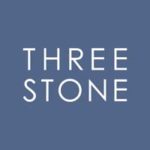Continue reading "Wills: The law of unintended consequences"
Wills: The law of unintended consequences


Continue reading "Wills: The law of unintended consequences"
John Reading died on 6 July 2005. He left a will dated 30 January 2004. He was survived by his wife, Janet; his two children, Stuart and Sally; and his three stepchildren, Neil, Ruth and Robin Sedgwick.
Under the will, Mrs Reading and Richard Flack were appointed trustees of a nil-rate band discretionary trust. The clauses of the will setting out the trusts of the nil-rate band trust included the testator’s ‘issue’ in the beneficial class. There was provision for such issue to be born at the testator’s death or thereafter during the trust period. Mrs Reading and Mr Flack brought a...

Continue reading "Residuary Gifts: Intention not precedent"
Ronald Anthony Allcroft Gibbons (the testator), who had no family, made a handwritten will on 29 December 2010 by which he appointed the claimants as his executors and gave them his residuary estate ‘to hold on trust to pay my debts, taxes and testamentary expenses and pay the residue to Veronica Broadhurst, Ann Foden, the living grandchildren of Veronica Broadhurst, and David Spurling in equal shares’. The testator died the following year and the claimants, who considered the terms of the residuary gift to be ambiguous, sought a declaration as to its construction. The third ...